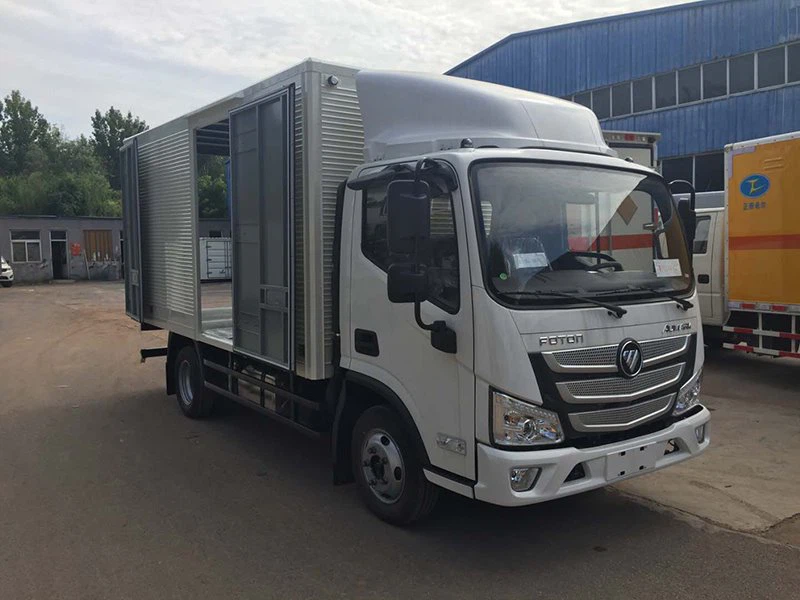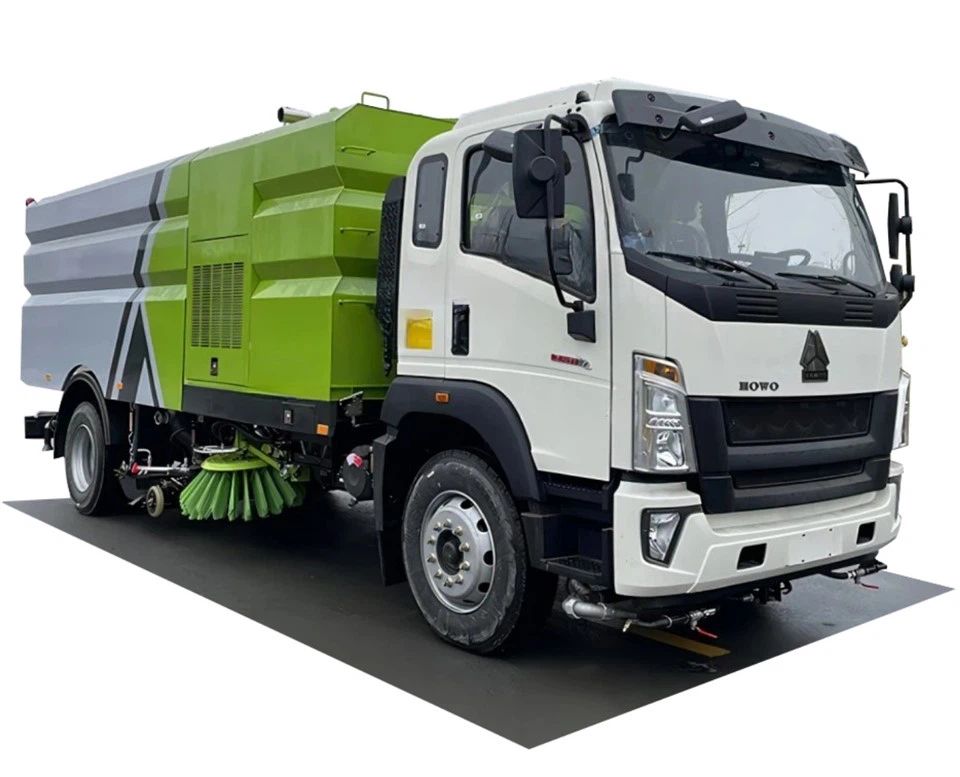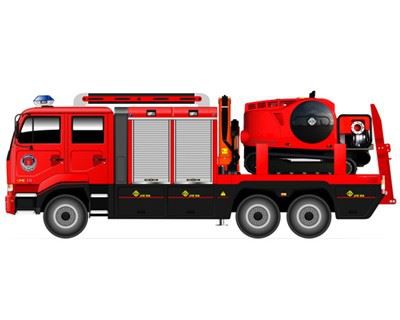Understanding the Working Truck World: A Complete Guide

The realm of working trucks is an expansive and dynamic sector that plays a critical role in various industries. From construction to logistics, working trucks are essential tools that assist in moving heavy loads, transporting materials, and providing services. Whether you’re in the market for a new truck, looking to understand their functions, or exploring the best practices for maintenance, this article aims to cover everything you need to know about the working truck world.
Table of Contents
- What Is a Working Truck?
- Types of Working Trucks
- Key Features to Consider
- The Importance of Maintenance
- Choosing the Right Truck for Your Needs
- Safety Tips for Working Truck Operation
- Technological Advancements in Working Trucks
- Case Studies: Real-World Applications
- Working Trucks vs. Personal Vehicles
- FAQs
What Is a Working Truck?
A working truck is a specialized vehicle designed for commercial purposes rather than personal use. These trucks are engineered to perform tasks such as transporting materials, hauling equipment, or providing services. They are characterized by their durability, power, and versatility in various working environments.
Types of Working Trucks
Working trucks come in various shapes and sizes, each tailored for specific functions. Here are some of the most common types:
Pickup Trucks
Pickup trucks are versatile and are popular in sectors such as agriculture and construction. They offer sufficient cargo space and can tow trailers.
Box Trucks
These trucks are commonly used for delivery services and can be outfitted with shelves for organized storage. They are perfect for moving furniture or tools.
Flatbed Trucks
Flatbeds offer an open cargo area with no sides or roof, making them ideal for transporting oversized items like equipment or raw materials.
Dump Trucks
Dump trucks are essential in construction and mining industries, designed to transport and unload heavy materials like sand, gravel, or dirt.
Heavy-Duty Trucks
These large trucks include semi-trucks and are primarily used for long-distance transport of goods, ideal for logistics and freight companies.
Key Features to Consider
When choosing a working truck, several essential features should be considered:
Payload Capacity
This refers to the maximum amount of weight that a truck can safely carry. Understanding your requirements is essential when selecting a truck.

Towing Capacity
Trucks that need to pull trailers or other loads must have a good towing capacity. Always check the specifications.
Fuel Efficiency
With rising fuel costs, consider the fuel efficiency of the truck to save on operating expenses.
Durability and Reliability
Choose trucks that are built to withstand rigorous working conditions and can reliably perform tasks without frequent repairs.
Safety Features
Modern working trucks come equipped with advanced safety features like rearview cameras, stability control, and lane assist to ensure safe operation.
The Importance of Maintenance
Regular maintenance is crucial to ensure the longevity and optimal performance of working trucks. Maintenance practices can help prevent breakdowns and costly repairs.
Key Maintenance Practices
- Regular oil changes are essential for engine health.
- Inspect brakes, tires, and lights frequently.
- Perform alignment and suspension checks to maintain steering and handling.
- Clean air filters to improve fuel efficiency.
Scheduled Maintenance
Develop a maintenance schedule to keep track of routine checks and repairs. This approach can minimize downtime and extend the truck’s life.
Choosing the Right Truck for Your Needs
Selecting the right working truck requires assessing your specific needs. Consider the following points:
Identify Your Requirements
Determine what tasks the truck will perform. Will you need it for heavy lifting, temperature-controlled shipping, or general transportation?
Budget Considerations
Establish a budget that includes not only the purchase price but also insurance, maintenance, and fuel costs. Aim for a truck that meets your needs without overspending.
Safety Tips for Working Truck Operation
Operating a working truck comes with responsibilities. Follow these safety tips to ensure safe operation:
Training and Licensing

Ensure that operators are properly trained and hold the necessary licenses for the type of vehicle being driven.
Pre-Operation Checklist
Always conduct a pre-operation inspection to check for any mechanical issues or potential hazards.
Load Distribution
Ensure proper load distribution to maintain stability and prevent tipping over.
Understanding Weather Conditions
Adapt driving based on weather conditions, and always exercise caution during adverse weather.
Technological Advancements in Working Trucks
The working truck industry has seen numerous technological advancements that enhance efficiency and safety:
GPS and Fleet Tracking
Real-time GPS tracking systems can optimize routes and monitor fuel consumption for better management.
Telematics Systems
Telematics systems provide data about the vehicle’s performance, aiding in maintenance schedules and operational efficiency.
Electric and Hybrid Trucks
Electric and hybrid trucks are becoming more popular in the industry, offering reduced emissions and lower operating costs.
Case Studies: Real-World Applications
Here are a few case studies where working trucks have played a vital role:
Construction Sites
Dump trucks are routinely used at construction sites to transport aggregates. For example, a construction firm that coordinated dump trucks effectively found a 30% increase in productivity.

Logistics Companies
Logistics companies often use box trucks for urban deliveries. A case study revealed that companies implementing fleet tracking saw a 15% reduction in delivery times.
Agricultural Sector
Pickup trucks are frequently utilized in rural farms for transporting livestock and feed. A farmer invested in a reliable pickup that improved transportation efficiency by 25% during harvest season.
Working Trucks vs. Personal Vehicles
It’s important to understand the differences between working trucks and personal vehicles:
Purpose and Design
Working trucks are designed for utility and performance, while personal vehicles emphasize comfort and style.
Capacity and Specifications
Working trucks often feature higher payload and towing capacities compared to personal vehicles, making them more suitable for heavy-duty tasks.
Resale Value
While personal vehicles may depreciate faster, well-maintained working trucks can retain higher resale values when demand is consistent in relevant sectors.
FAQs
What is the average lifespan of a working truck?
The average lifespan of a working truck can vary greatly, but most can last between 10 to 15 years with proper maintenance.
How much does it cost to maintain a working truck?
Maintenance costs can range from $500 to $2,000 per year, depending on usage and the type of truck.
Do I need a special license to drive a working truck?
Yes, a commercial driver’s license (CDL) is typically required for operating heavy-duty working trucks.
Can electric trucks be used for heavy-duty work?
Yes, advancements in technology have led to the development of electric trucks suitable for heavy-duty work, although they may still be limited in range compared to traditional trucks.
What are the environmental benefits of using hybrid trucks?
Hybrid trucks produce lower emissions and can improve fuel efficiency, leading to reduced operational costs and a smaller carbon footprint.
How can I improve fuel efficiency in my working truck?
Regular maintenance, efficient driving habits, and reducing excess weight can all contribute to improved fuel efficiency.
